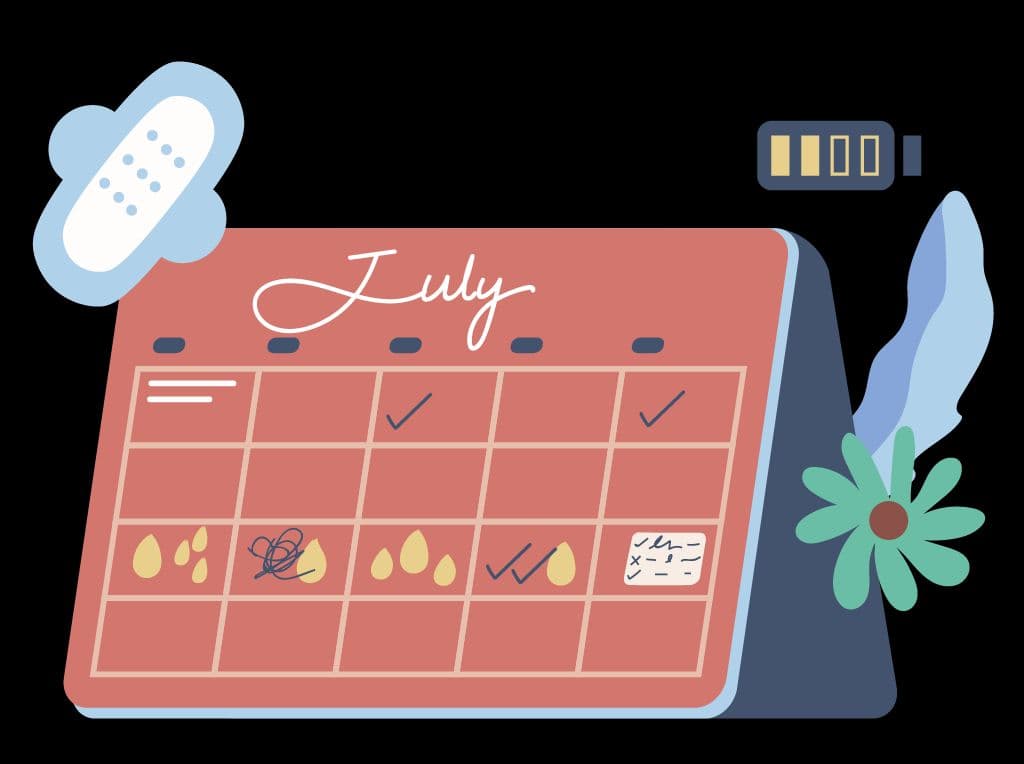“Kitchen me nahi jana.” (Don’t enter the kitchen) These were some of the first words that my grandmother said to me when I started menstruating at the age of 11. I clearly remember, it started on the 2nd of February, 2011 at school. At 11, I was oblivious to the concept of menstruation because in India, like any other stigmatized topic, periods are also swept under a carpet. Menstruation is something that most women experience in their lifetimes for a combined average of 3,500 days, that adds up to about 10 years of their life!
Menstruation takes up a major chunk of a woman’s life but it doesn’t come alone. It also brings with it a series of myths and cramps. Cramps, we can’t really do much about at the moment, but myths, some of those we can surely bust for you right away. Some myths surrounding periods might make you roll your eyes or laugh, but several others exclude women from many aspects of socio-cultural life. So, we are debunking some of the period myths for you once and for all.

- You cannot enter the kitchen
This myth is based on two underlying factors. The first one is the cultural belief of impurity that periods are often associated with. It is believed that menstruating women are unhygienic and thus, the food that they prepare or touch might get spoilt or contaminated. There is no scientific basis to this, so as long as you practise basic hygiene, you’re good to enter the kitchen and even prepare a nice meal for yourself. The second is giving rest to women which is a relatively sensible factor. It’s a good thought till it’s not imposed as a restriction.
- You cannot swim while menstruating
In the good old days, this might’ve been true. But with changing times, we need to change as well. This one dates back to the days when tampons and menstrual cups weren’t a thing and thus, hygiene was an issue. Even though the difference between the water and blood pressure usually prevents blood flow under water, stepping into a pool without protection can still be problematic. But with tampons and menstrual cups, swimming is a breeze and you don’t need to worry about any leaks. So, get into that pool and burst all the myths.
- Period blood is dirty blood and makes you impure
Period blood is as dirty as the blood that comes out from any other part of your body. Yes, it’s true that it’s a mix of blood, uterine tissue, bacteria and mucus lining, but none of that makes it impure as many would want you to believe. It’s composition might be different, but the whole impurity myth stems from the taboo that surrounds menstruation. This has no scientific evidence, if we relate dirty and impure to being toxic or causing diseases.
- You cannot wash your hair
This one might’ve been valid in the times when hot water was a luxury and your grandmothers needed to bathe with cold water. The cold water is said to increase menstrual cramps and that does stand true for some women. But, on the contrary, a hot shower helps in relieving cramps and makes you feel more relaxed. So, don’t fret over not washing your hair till the third day, just go for it if you’re comfortable.
- Using a tampon can lead to loss of virginity
Considering how some people think that virginity needs to be protected till marriage for a woman, this myth has held back several women from using tampons. By its definition, ‘virginity is the state of a person who has never engaged in sexual intercourse.’ Thus, apart from the act from having sexual intercourse, you cannot lose your virginity. The myth stems from the idea of the hymen getting altered with the use of a tampon, which might happen, but it has no connection with losing your virginity.
- You Lose An Enormous Amount Of Blood
It might look like you lose a lot of blood while on periods, but this is purely fiction. An average woman only loses about 2-3 tablespoons of blood, that is about 35 ml, during a period. It can range between 10 ml to 80 ml during the 2 to 7 day cycle but it surely won’t be enough to qualify as an enormous amount. Obviously, there are exceptions, so if it starts affecting your life then you must certainly consult your doctor.
- Menstruating women cannot exercise
In olden days, menstruation was often treated as a disease, so menstruating women were supposed to stay in bed. On top of that, there weren’t enough hygiene products like we have now. In today’s context, women can do almost anything while menstruating that they can do otherwise. In fact, regular exercising helps in combating menstrual cramps and mood swings by releasing endorphins. So, it’s a great idea to do lightweight exercises daily, including the days of your periods.
Bottom Line
For the longest time, women have been made to feel shameful about the most natural bodily process that there is, menstruation. It’s time we start discussing it openly and not in hushed tones. At 11, I didn’t know better so I just followed what my elders told me to, but at 18, I questioned. Awareness is important, but what is more important is utilising that awareness at the right time. Every small effort counts, because when I asked my grandmother for the reason behind ‘not letting me go into the kitchen,’ she paused, it made her think. For more than 2 years, I feared using a menstrual cup (even though I knew how it’s so much better and more sustainable) because of a myth which has no base. And these are just myths that have affected me personally, I’m sure there are a hundred others who exclude women from going through the natural biological process that menstruation is, something that they have no control over. To conclude, the myths and stigmas that surround menstruation can adversely affect women’s lives and it’s essential that we put an end to it. Period.
Disclaimer: This information is educational and should not be construed as medical advice. Please consult your doctor before making any dietary changes or adding supplements.
ProactiveForHer is a digital clinic for women, offering accessible, personalised, and confidential healthcare solutions. We offer out-patient care, diagnostic services and programs for various health concerns of Indian women, across their lifetime - from puberty to pregnancy to menopause.

